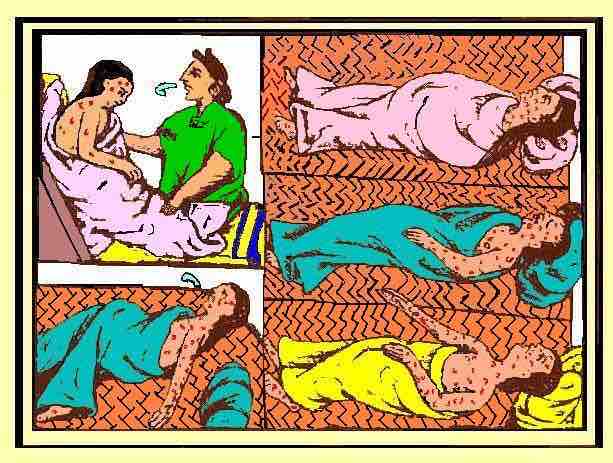Colonialism and Health
Colonialism is the policy or practice of acquiring full or partial political control over another country, occupying it with settlers, and exploiting it economically. Historically, this has often involved killing or subjugating the indigenous population. Encounters between explorers and populations in the rest of the world often introduced new diseases, which sometimes caused local epidemics of extraordinary virulence.
European colonization contributed to the spread of disease worldwide. Trade routes and New World conquests devastated indigenous populations, as they were exposed to new pathogens and newly domesticated animals. Colonization in Africa and parts of Asia was not as simple for Europeans as it was in the Americas, because Europeans were subjected to diseases they had no prior exposure to. In response to becoming infected, European military and government officials living in African and Asian colonies were quarantined to safety in areas away from natives, who were believed to be disease carriers, and, thus, "biologically inferior. " The leading cause of death in Europe and North America in the nineteenth century was tuberculosis.
The European contribution to global pathogen exposure created a "global homogenization of disease," where no border was left uncrossed in the spread of infectious diseases. The ill health effects are long lasting, especially because the health of Europeans improved while the health of colonized nations worsened. Following the end of colonization, many countries continued to use and attempted to enhance their "inherited" healthcare systems, which consisted of "inadequate," and "top-heavy" structures based on Western medical models. These same models continued to benefit elites and addressed the "rural poor" once the "needs of the urban elite were attended to. " Hospitals in metropolitan areas were first priority, followed by small rural clinics that were underfunded, understaffed, and, thus, less effective.
From the beginning of the twentieth century onwards, the elimination or control of disease in tropical countries became a driving force for all colonial powers. The sleeping sickness epidemic in Africa was arrested due to mobile teams systematically screening millions of people at risk. In the twentieth century, the world saw the biggest increase in its population in human history due to lessening of the mortality rate in many countries due to medical advances. The world population has grown from 1.6 billion in 1900 to over 7 billion today.

Florentine Codex smallpox
Aztecs dying of smallpox, ("The Florentine Codex," 1540–85)